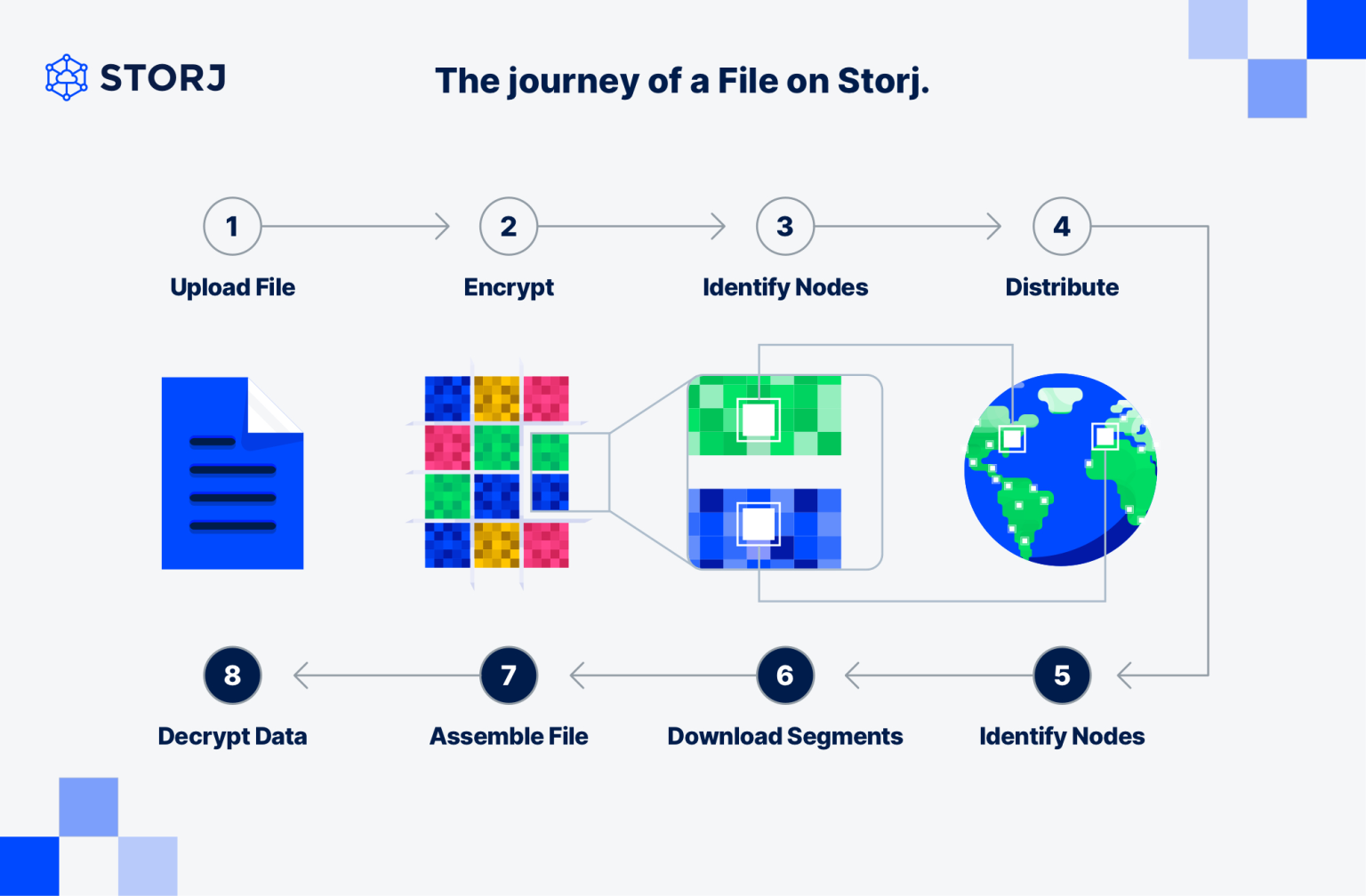Decentralized storage networks are getting increasingly popular over mainstream centralized ones such as AWS, Google and Microsoft. The primary reason for the shift is low cost of operations and security.
Some of the notable decentralized storage platforms are Filecoin, Siacoin, Bititorent, and Storj. Among these platforms, Storj has developed a new scalable solution called Storj NEXT, promising more scalable decentralized solutions for Web2 and Web3 firms alike. With a focus on community building, the latest upgrade introduces a new economic model that provides for broader participation in the Storj ecosystem.
Storj is a decentralized system of distributed object storing, which keeps information encrypted. Storj is based on Bitcoin’s blockchain technology and peer-to-peer protocol in order to provide safe and efficient cloud storage.
Storj utilizes unused storage on computers around the world with the help of encryption and blockchain. It breaks the uploaded data into smaller fractions and distributes it across the network so that no single company or organization can have access to all uploaded data.

The decentralized storage platform is introducing a new crypto-enabled perpetual storage feature, where dedicated wallet addresses for Storj accounts can unlock perpetual storage using Ethereum smart contract payments with STORJ. The feature will allow network participants to be rewarded for depositing STORJ, the Ethereum-based fungible token used across the Storj network.
The new model will accommodate storage needs for both- node operators and independent satellite operators. Storj claimed its latest update will allow Web2 and Web3 businesses to reduce cloud costs without sacrificing reliability or performance.
The latest update will enable staking as well, which would allow node operators and community satellites to make way for passive income for network participants.
Related: Polygon launches decentralized ID product powered by ZK proofs
For node operators who wish to move beyond operating nodes to operate a storage network, the platform is adding capabilities with code, test data, and more. This would allow enterprises to operate their distributed storage networks globally without capital and energy-intensive data centers, calling it a community satellite model.
Storj’s claimed its decentralized solutions are increasingly becoming popular among Web2 firms amid the rising cost of storage servers. In the last year, Storj has scaled from 13,000 to 20,000 nodes, leading to a 40x rise in its network use.


